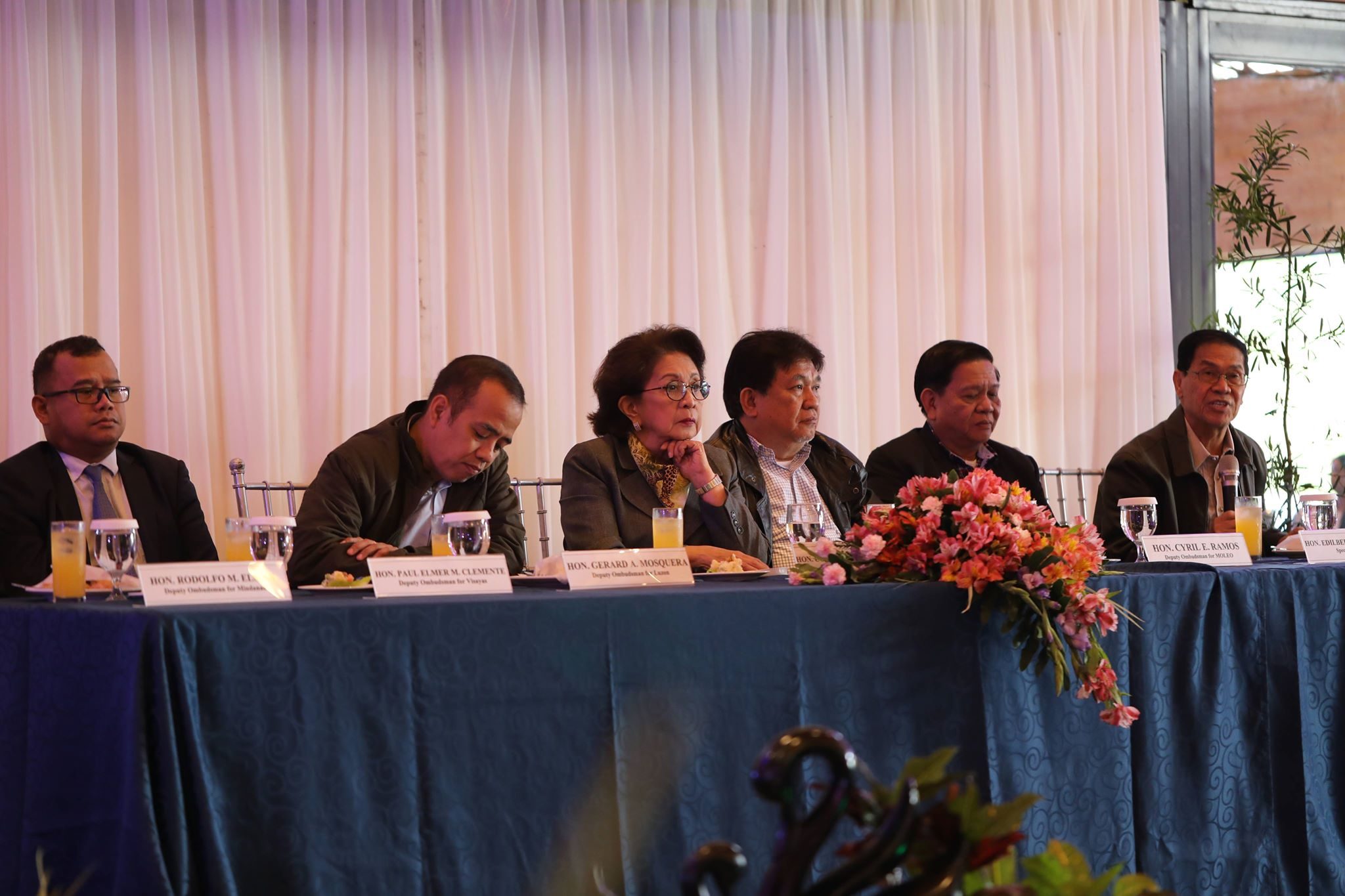SUMMARY
This is AI generated summarization, which may have errors. For context, always refer to the full article.

BAGUIO, Philippines – Ombudsman Conchita Carpio Morales said that the anti-graft court Sandiganbayan is using the inordinate delay doctrine as an “excuse” to clear its dockets of cases.
“Nauubos na ‘yung kaso namin na ang gaganda pa namang cases (We our losing our cases, good cases) but because of that inordinate delay doctrine, they dismiss us. That is a convenient excuse for them to dispose of cases because they are following the Supreme Court,” Morales said, referring to the Sandiganbayan.
The issue of inordinate delay has always incensed Morales, who has become increasingly frustrated over this because she might be leaving office without seeing clear solutions to the problem. She is due to retire when her term expires on July 26.
Remember that Morales is the Ombudsman who got the High Court to strike down the condonation doctrine. Now, officials can no longer escape administrative liability just by being re-elected, and under the past doctrine, condoned for their mistakes.
After the condonation doctrine, the inordinate delay doctrine became the next popular defense of public officials. Under the doctrine, delays in the investigation process violate the rights of an accused to speedy disposition, and therefore, the case must be dismissed.
Morales petitioned the High Court as early as September 2016 to strike down or at least revise the doctrine guidelines.
Four months ago, Morales said she got the word of SC Associate Justice Presbitero Velasco Jr, albeit informally, that the High Court was going to clarify the guidelines.
“For months on end we have been waiting. Now it has been 4 months and there are no guidelines yet,” Morales said at the Ombudsman Integrity Caravan held in Baguio City on Monday, July 2.
She added: “It’s very sad, it’s very disappointing. I’m leaving the office with a heavy heart; heavy because the inordinate delay doctrine has not been handled by the Supreme Court the way we would like it.”
Morales’ SC petition impleaded the Sandiganbayan as a respondent. In a rare press conference in April 2017, Morales took a swipe at the anti-graft court by reacting to the years-long trial of the pork barrel scam: “Hindi ba ‘yan (Is that not) inordinate delay?”
Inordinate delay
Based on data from January 2016 to May 2017, the Office of the Ombudsman lost 79 cases because of the inordinate delay doctrine, including high-profile cases like the fertilizer fund scam and the P6-billion Philippine National Construction Corporation (PNCC)-Radstock debt deal.
Defense lawyers are looking to use the doctrine for their clients now, and lawyers for complainants whose cases are still pending before the Ombudsman are growing worried.
What Morales wants – if not erasing the doctrine altogether – is for the Sandiganbayan to exclude from the count the phase of the fact-finding investigation. It’s the phase before the criminal nature of the preliminary investigation.
Fact-finding investigation is where cases usually take a long time, either because of the complex nature of the corruption case, or just clogged dockets.
There is also the “parking fee” issue or a supposed bribery scheme where Ombudsman investigators are paid to deliberately delay the cases.
Morales said there is no concrete evidence yet to support this allegation but she acknowledged the bottle neck at the investigation phase. She said the next Ombudsman should be more strict and aggressive in monitoring cases.
“Malalaman mo kung ‘yung investigator ay either stupid, or natututulog, or inefficient, or simply tamad (You can see if the investigator is either stupid, sleeping on the job, inefficient, or just lazy),” Morales said.
“[Monitoring] would put a dent on the problem, but it will not ultimately solve the problem of inordinate delay. For as long as the Supreme Court counts the period of investigation, fact-finding investigation or period of case build up, to the period of preliminary investigation, wala kaming laban (we have no fighting chance),” Morales added. – Rappler.com
Add a comment
How does this make you feel?
There are no comments yet. Add your comment to start the conversation.